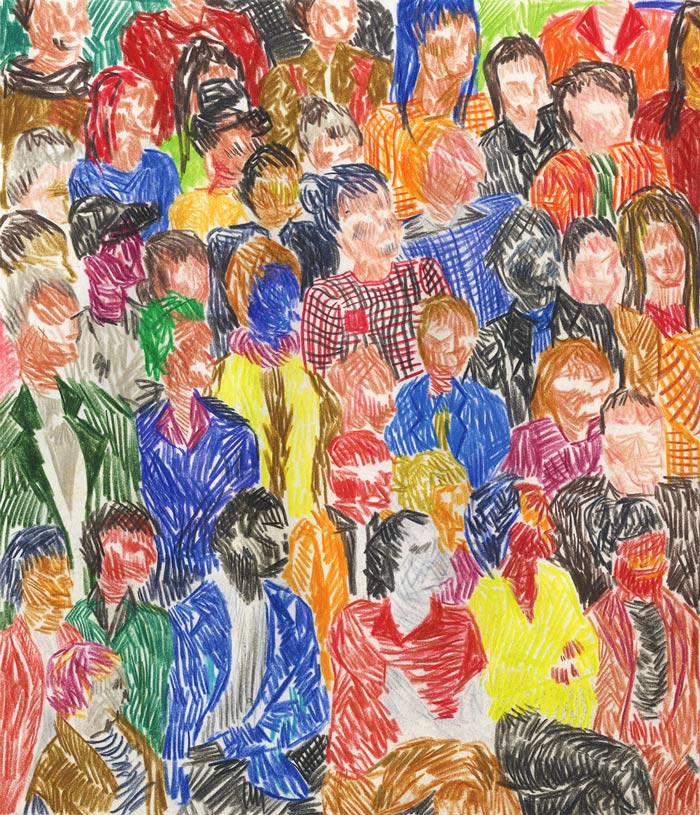
Opinion
Here are the discussions Black Lives Matter protesters should carry on having
By Medya Gungor
Opinion
Here are the discussions Black Lives Matter protesters should carry on having
By Medya Gungor
Published Jun 25, 2020 at 11:13 AM
Reading time: 3 minutes
Human rights
Jun 25, 2020
It has been just over two weeks since I attended my first peaceful protest in Hyde Park to show support for the black community in the light of George Floyd’s death. Although some media outlets were quick to depict them as violent, the protests I took part in were incredibly visceral and moving experiences, fostering no violence or aggression, only compassion and understanding felt by all of those who considered it their moral duty to be there. Now, as public demonstrations start slowing down, it’s important we carry on having discussion about systemic racism and injustice. Here’s where we should start.
The discussions regarding racism in the UK I’ve had prior to and in the wake of this global movement have been nothing short of eye-opening. Many people seem to be giving the impression that they are willing to do the work needed to educate themselves on this subject. The response we have seen across social media, in theory, suggest potential change as people are continuing to share useful resources and as books on institutional racism fly off the shelves. This is a start.
However, after speaking at length with a lot of my POC friends, I’ve noticed that while sharing articles and showing support online is important, it must not slip our minds that initiating the real-life conversations on how black people are treated in society is crucial. Listening to a podcast with your favourite celebrities discussing the topic is great, but are enough people going further in questioning their personal behaviours and deeply ingrained prejudices? Spoiler: probably not.
This process isn’t supposed to be easy. Accepting that you are part of a system and throughout your life have contributed consciously or subconsciously in promoting racial injustice is uncomfortable. These feelings and realisations are necessary to invoke a mindset which accepts responsibility and is committed to changing habitual beliefs.
I recall a conversation I had about a month ago with my friend Lutanga, who is both Zambian and English. I had asked him his thoughts on what he thinks white people need to be aware of: “Friends either fear what to say, so they don’t speak their mind, or it goes the other way where they feel too comfortable and think they can say whatever they want or do whatever they want because they have a black friend. Being black or mixed-race has now been qualified as ‘cool’ by some but there are so many everyday racist scenarios that people don’t understand.”
“People make assumptions like ‘oh you’re black, you must be good at this’ or ‘you’re black, you must be not very good at this’. People need to understand that they can’t just say one thing if they’re going to act the opposite of what they actually mean. You might be all buddy-buddy with me until you go home to your parents and then you start making different comments,” he added.
I asked him a question that had been on my mind for some time, one which I think many people will resonate with. How can someone who undoubtedly benefits from white privilege initiate and explore the topic of racism without seeming disrespectful or inauthentic?
“It’s really just knowledge, learn what is acceptable to say and what isn’t so that you understand the boundary and never have to cross it. Understand that mixed-race people come from two cultures; just because I have white attributes that doesn’t mean I’m not black at all. There is no need to assume that everything you’re going to say might offend us, it’s the way you go about saying it. If you’re defensive, I’m gonna be defensive. People only think stereotypes are true through a lack of understanding. If you have a black friend or a friend from another culture, ask loads of questions, in the correct way.”
That’s exactly why alongside signing petitions, educating yourself on the history of white supremacy and attending protests, one of the most useful resources available to us right now might just be our voices. By both speaking up when you hear a racist comment, having constructive conversations and being confident in confronting people’s views, you might be able to further change. As a placard at the protest rightfully stated; understanding that black lives matter more than your white friends’ feelings.
I had to explain to my best friend of ten year’s mum that racism is far more of an issue in the UK than she believed it to be—this is an example of the work that needs to be done behind closed doors. It won’t be easy and it won’t happen by itself. The excuse of ignorance in different generations is not a valid one. It is in these moments which are not shared on Instagram that our dedication to this movement is truly challenged as we must push aside the presence of our ego in order to rip the roots of systemic racism from under the ground.
Are you willing to take part or will you watch from the sidelines?




